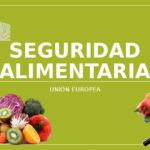A report presented yesterday jointly by the European Union, the Food and Agriculture Organization of the United Nations (FAO), and the UN World Food Programme (WFP) finds that around 113 million people in 53 countries experienced acute food insecurity in 2018, compared to 124 million in 2017.
Key findings
- The figure of 113 million people facing food crises is down slightly from the 124 million figure for 2017. However, the number of people in the world facing food crises has remained well over 100 million in the last three years, and the number of countries affected has risen. Moreover, an additional 143 million people in another 42 countries are just one step away from facing acute hunger.
- Nearly two-thirds of those facing acute hunger are in just 8 countries: Afghanistan, the Democratic Republic of the Congo, Ethiopia, Nigeria, South Sudan, Sudan, Syria and Yemen. In 17 countries, acute hunger either remained the same or increased.
- Climate and natural disasters pushed another 29 million people into acute food insecurity in 2018. And 13 countries – including North Korea and Venezuela – are not in the analysis because of data gaps.
Background
The Global Report is produced each year by the Global Network Against Food Crises, which is made up of international humanitarian and development partners. This year’s report is being presented at a two-day high-level event, ‘Food and agriculture in times of crisis’, that begins in Brussels today and will look at innovative approaches and solutions for preventing and addressing food crises, plus a roadmap for joint future action. For more key findings from the report, see here.
Acute food insecurity is when a person’s inability to consume adequate food puts their lives or livelihoods in immediate danger. It draws on internationally accepted measures of extreme hunger, such as the Integrated Food Security Phase Classification (IPC) and the Cadre Harmonisé.
Partners involved in producing the Global Report on Food Crises 2019 are: the Autorité Intergouvernementale pour le Développement (IGAD), Le Comité Permanent Inter-Etats de Lutte contre la Sécheresse dans le Sahel (CILSS), the European Union, FAO, the Integrated Food Security Phase Classification (IPC) Global Support Unit, the International Food Policy Research Institute (IFPRI), the Famine Early Warning Systems Network (FEWS NET), the Global Food Security Cluster, the Global Nutrition Cluster, OCHA, Southern Africa Development Community (SADC), the Sistema de la Integración Centroamericana (SICA), UNICEF, USAID and WFP.
More information
Access the complete news
Report: Global Report on Food Crises 2019 (Interactive)






Leave a Reply